Tom's Hardware Verdict
MSI’s Spatium M480 is a high-end PCIe 4.0 NVMe SSD that, while very fast, isn’t quite the best value, even when compared to other top-end drives. It's best suited for builds where speed and unique looks are both important.
Pros
- +
+ Competitive performance
- +
+ Appealing aesthetics
- +
+ Effective cooling
- +
+ 5-year warranty
Cons
- -
Costly
- -
Below-average power efficiency
- -
SLC cache is slow to recover
- -
No 500GB model in the USA
Why you can trust Tom's Hardware
Although MSI is known more for its motherboards and graphics cards, the company now also offers up one of the fastest NVMe SSDs available. MSI’s Spatium M480 is a high-end PCIe 4.0 x4 drive that dishes out speeds of up to 7 GBps, while not only looking cool but keeping its cool, too. It’s a pricey SSD, but well worth your consideration if you are on the hunt for a high-end gaming SSD to complement your build’s unique aesthetics.
MSI’s Spatium M480 is the company’s fastest SSD, yet and it's based on Phison’s fastest NVMe controller to date, the PS5018-E18. Like many other high-end gaming drives, the M480 comes in two variants: a model with a heatsink and one without. Today, we take a look at the one with the heatsink, in all of its beautiful splendor.
Our initial impressions are that the MSI Spatium M480 is an attractive drive, for sure. The large bronze-colored heatsink and emblem on top of the device look fantastic, and the heatsink works more than well enough to prevent the Spatium M480 from ever thermal throttling under load. Best of all, it’s only $10 more than the drive without the heatsink. However, it will take more than just good looks for the Spatium M480 to stand out from a growing number of E18-based competitors.
Specifications
| Product | 500GB | 1TB | 2TB |
|---|---|---|---|
| Pricing w/heatsink | N/A | $229.99 | $444.99 |
| Pricing w/out heatsink | N/A | $219.99 | $434.99 |
| Capacity (User / Raw) | 500GB / 512GB | 1000GB / 1024GB | 2000GB / 2048GB |
| Form Factor | M.2 2280 | M.2 2280 | M.2 2280 |
| Interface / Protocol | PCIe 4.0 x4 / NVMe 1.4 | PCIe 4.0 x4 / NVMe 1.4 | PCIe 4.0 x4 / NVMe 1.4 |
| Controller | Phison PS5018-E18 | Phison PS5018-E18 | Phison PS5018-E18 |
| DRAM | DDR4 | DDR4 | DDR4 |
| Memory | Micron 96L TLC | Micron 96L TLC | Micron 96L TLC |
| Sequential Read | 6,500 MBps | 7,000 MBps | 7,000 MBps |
| Sequential Write | 2,850 MBps | 5,500 MBps | 6,800 MBps |
| Random Read | 170,000 IOPS | 350,000 IOPS | 650,000 IOPS |
| Random Write | 600,000 IOPS | 700,000 IOPS | 700,000 IOPS |
| Security | AES 256-bit encryption | AES 256-bit encryption | AES 256-bit encryption |
| Endurance (TBW) | 350 TB | 700 TB | 1,400 TB |
| Part Number | N/A | HS: S78-440L430-P83; non-HS S78-440L490-P83 | HS: S78-440Q100-P83; non-HS: S78-440Q150-P83 |
| Warranty | 5-Years | 5-Years | 5-Years |
The Spatium M480 is available in capacities of 1TB and 2TB in the US market, with the company pricing them at roughly $0.22-$0.23 per GB, depending on the capacity and if you get the one with the heatsink or not. The company also offers a 500GB model, but it will only be available outside of America.
The 2TB is the fastest capacity, and as such, is the model we are analyzing today. It is rated to deliver sequential performance figures of up to 7/6.8 GBps and upwards of 650,000/700,000 random read/write IOPS. The smaller capacities perform a bit slower, as per usual. The 1TB model can deliver similar read performance, but takes a hit on writes, rated for 7/5.5 GBps read/write and the 500GB model, without as many NAND flash dies for interleaving, manages to only muster up to 6.5/2.85 GBps read/write, which is still very respectable.
In terms of endurance and warranty, MSI backs the Spatium M480 fairly well, due to its inclusion of Phison’s fourth-generation LDPC ECC, RAID parity, and end-to-end data path protection. MSI backs the Spatium M480 with a five-year warranty and/or the ability to sustain up to 1,400 TB of writes on our 2TB sample. As for the smaller capacities, their endurance halves with capacity.
Like most SSDs that we’ve reviewed, the Spatium M480 supports secure erase /Format NVM command to completely wipe to a fresh, empty state. It also has support for TRIM, and S.M.A.R.T. data reporting. But unlike most, it also supports AES 256-bit hardware encryption, making the Spatium M480 perfect, not only fast performance but secure data storage too.
Get Tom's Hardware's best news and in-depth reviews, straight to your inbox.
Software & Accessories
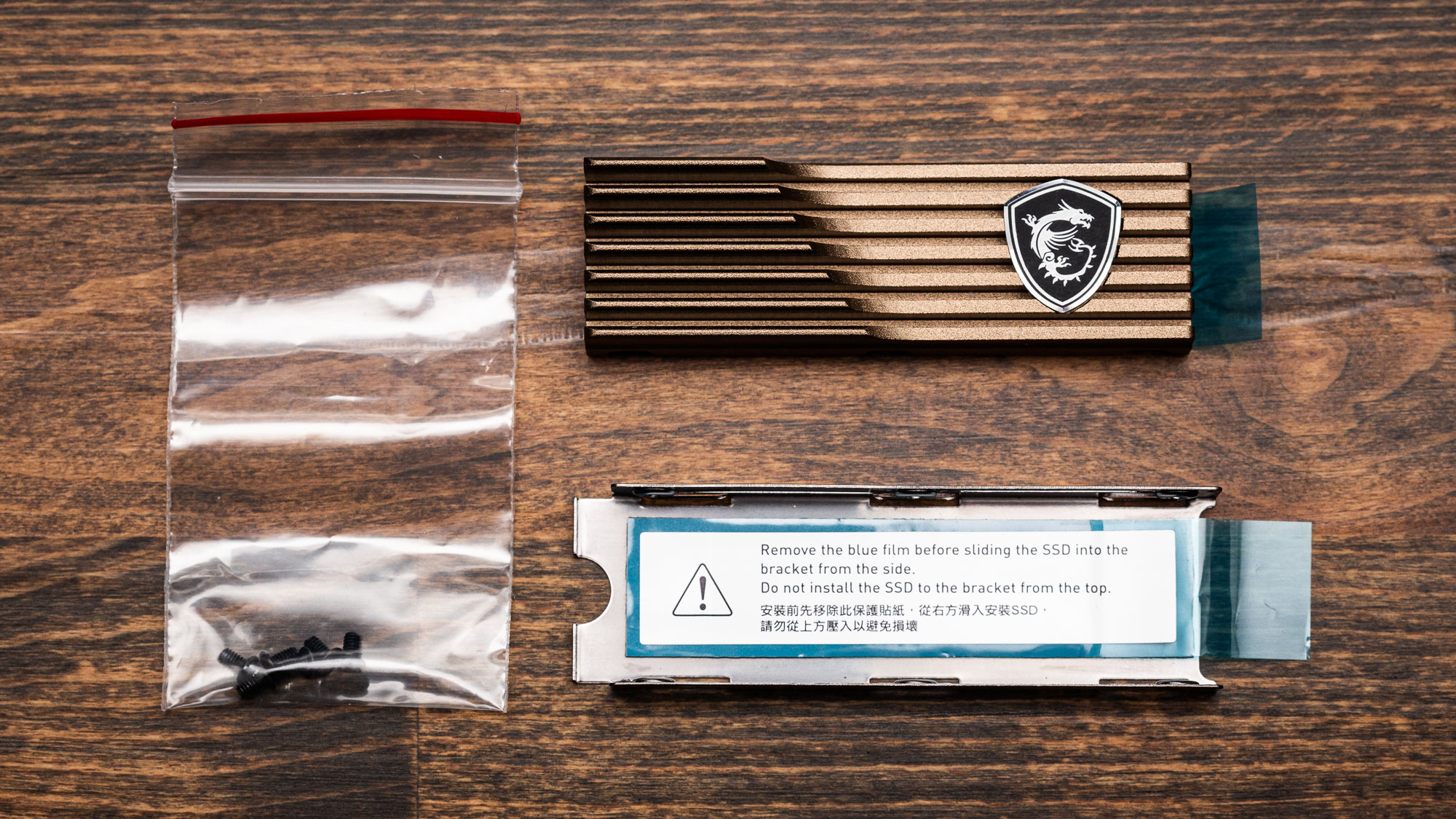
MSI doesn’t currently provide SSD software to support the Spatium M480, but the company is working on an upcoming update to MSI Center that will enable users to monitor drive health and performance. The company also states that it will also offer backup & restore functionality via an Actiphy software solution.
As mentioned, we are analyzing the heatsink variant. It comes with a heatsink in the packaging as a separately added piece, rather than pre-applied like on most SSDs that include heatsinks. It's a classy bronze-colored aluminum heatsink that for most use cases isn’t even needed, but is still an added benefit in terms of aesthetic appeal. So, if you end up needing the slim form factor without the heatsink installed, you can still use your motherboard’s included heatsink or throw it in your laptop as well.
A Closer Look
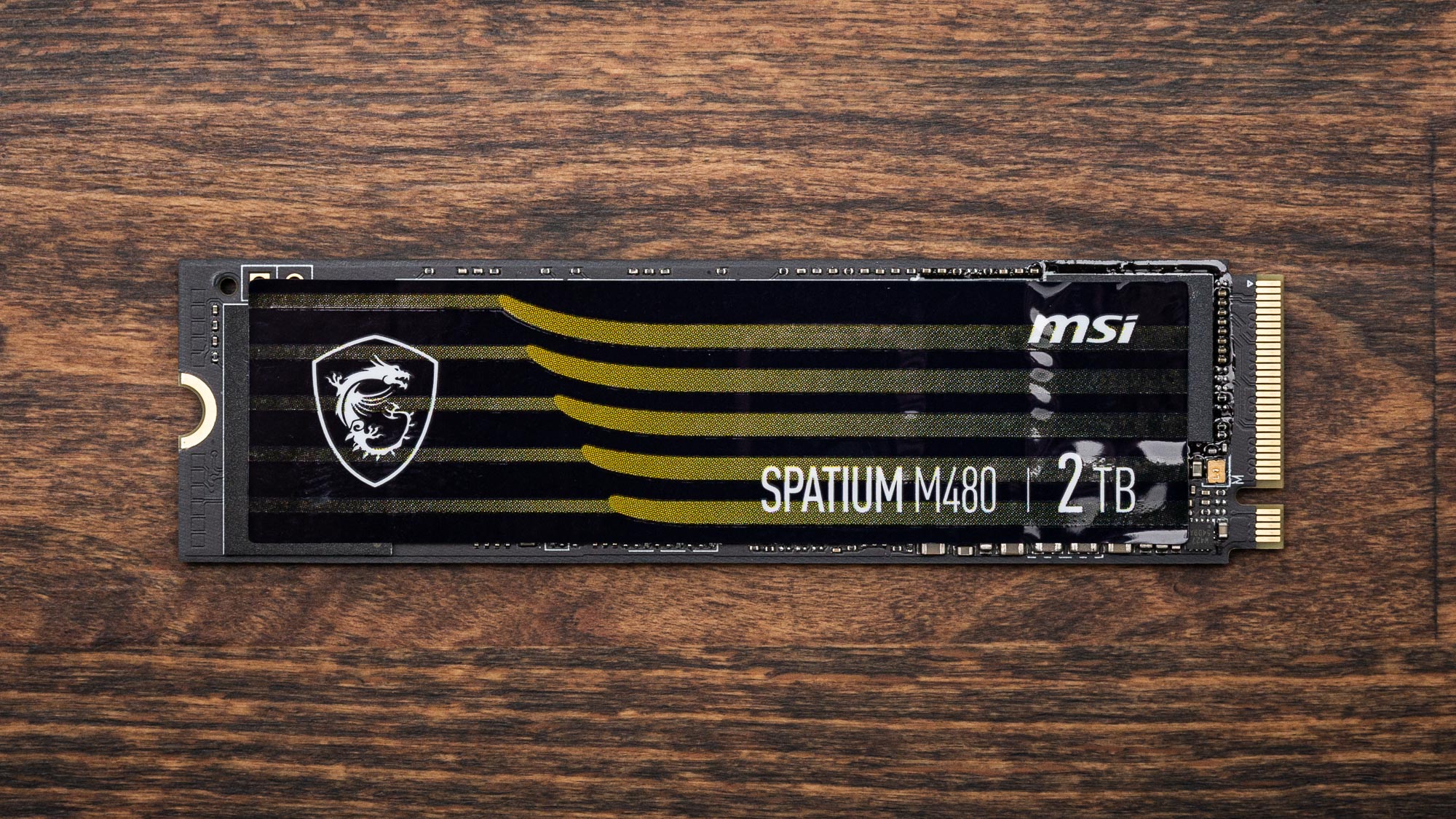
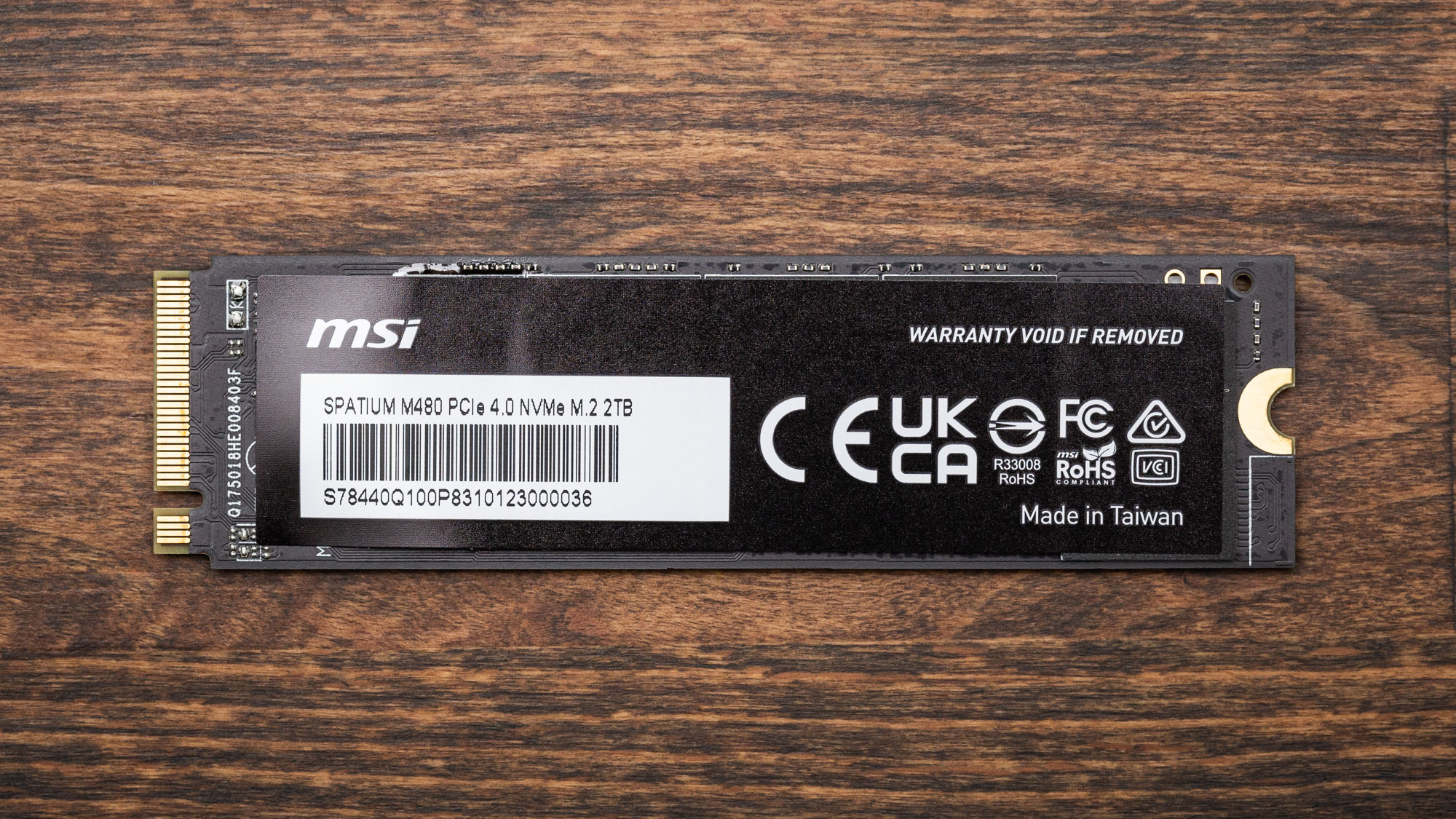
Our Spatium M480 sample features a black PCB and comes in a 2280 double-sided form factor, meaning there are components on both sides of the PCB. This may limit installation ability in some mobile systems. For desktops however, you shouldn’t run into any issues with or without the heatsink installed in the primary M.2 slot. But you may not be able to install an add-in-card if you use a middle or secondary M.2 slot, depending on the motherboard. The heatsink’s height measures 20.40mm vs just 2.15mm of the plain M.2 PCB.
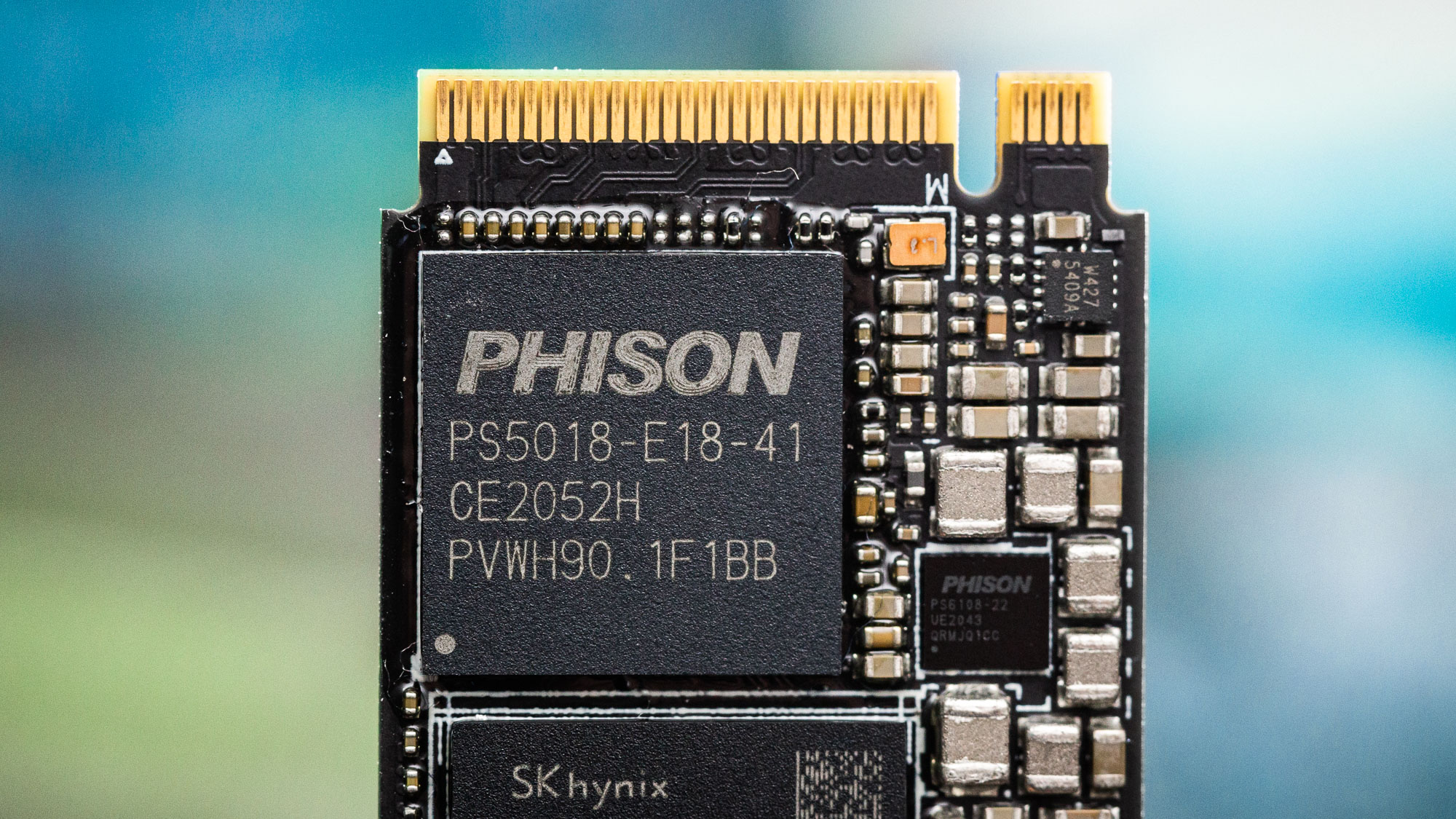
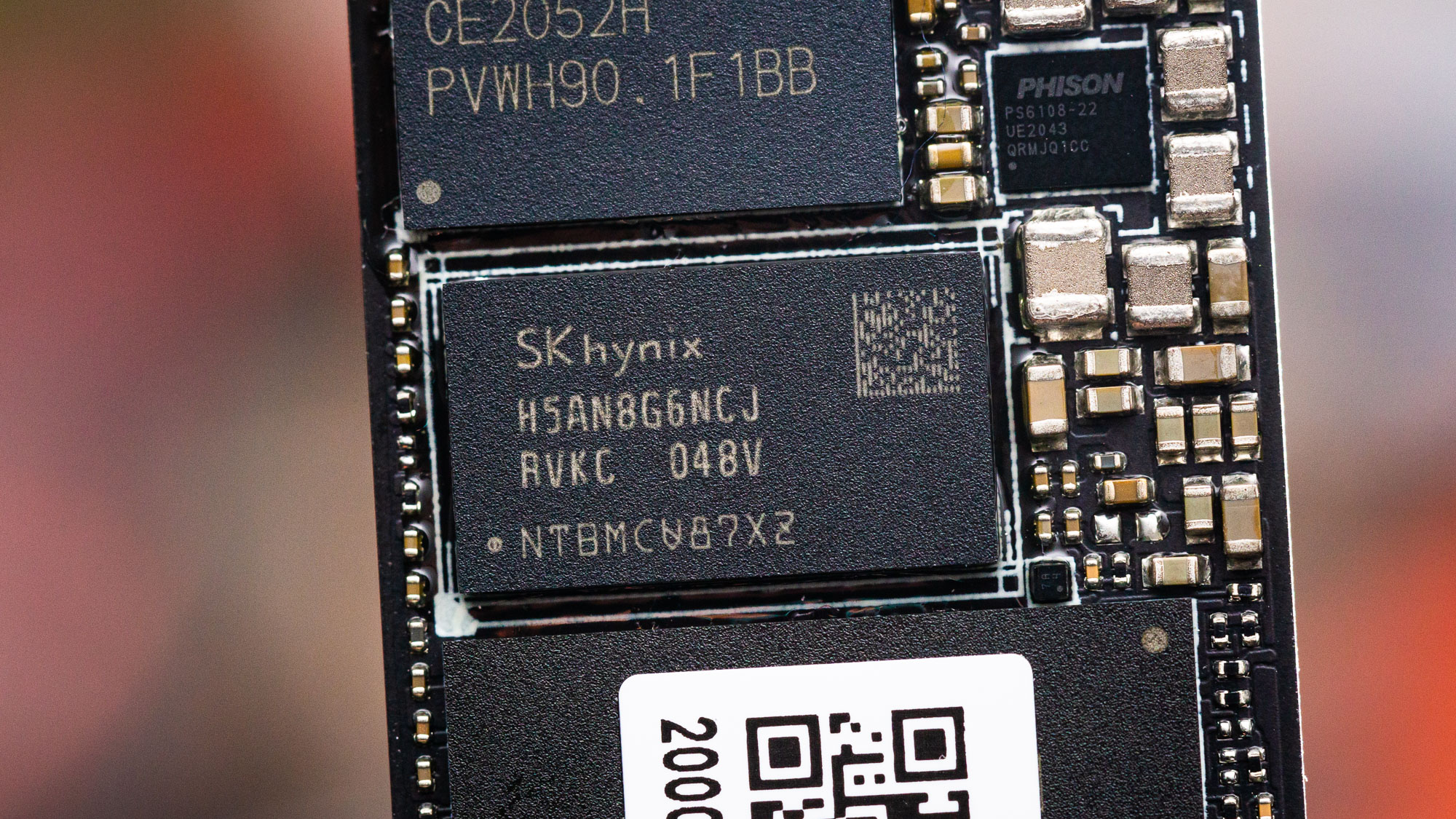
As mentioned earlier, the Spatium M480 is based on Phison’s PS5018-E18, and it comes paired with fast TLC flash to achieve its high-performance specs. The controller is an 8-channel design that features five total cores for data processing. It was also built on a 12nm process to keep down power consumption, although the drive is still fairly power-hungry.
The Phison E18 supports ASPM and ASPT to keep operating temperatures under control, and it even supports L1.2 for low power consumption when idle in mobile devices. It also places the LBA mapping table onto some DDR4 DRAM; our 2TB sample leverages two 8Gb SK hynix DRAM chips, one on each side of the PCB for the task.
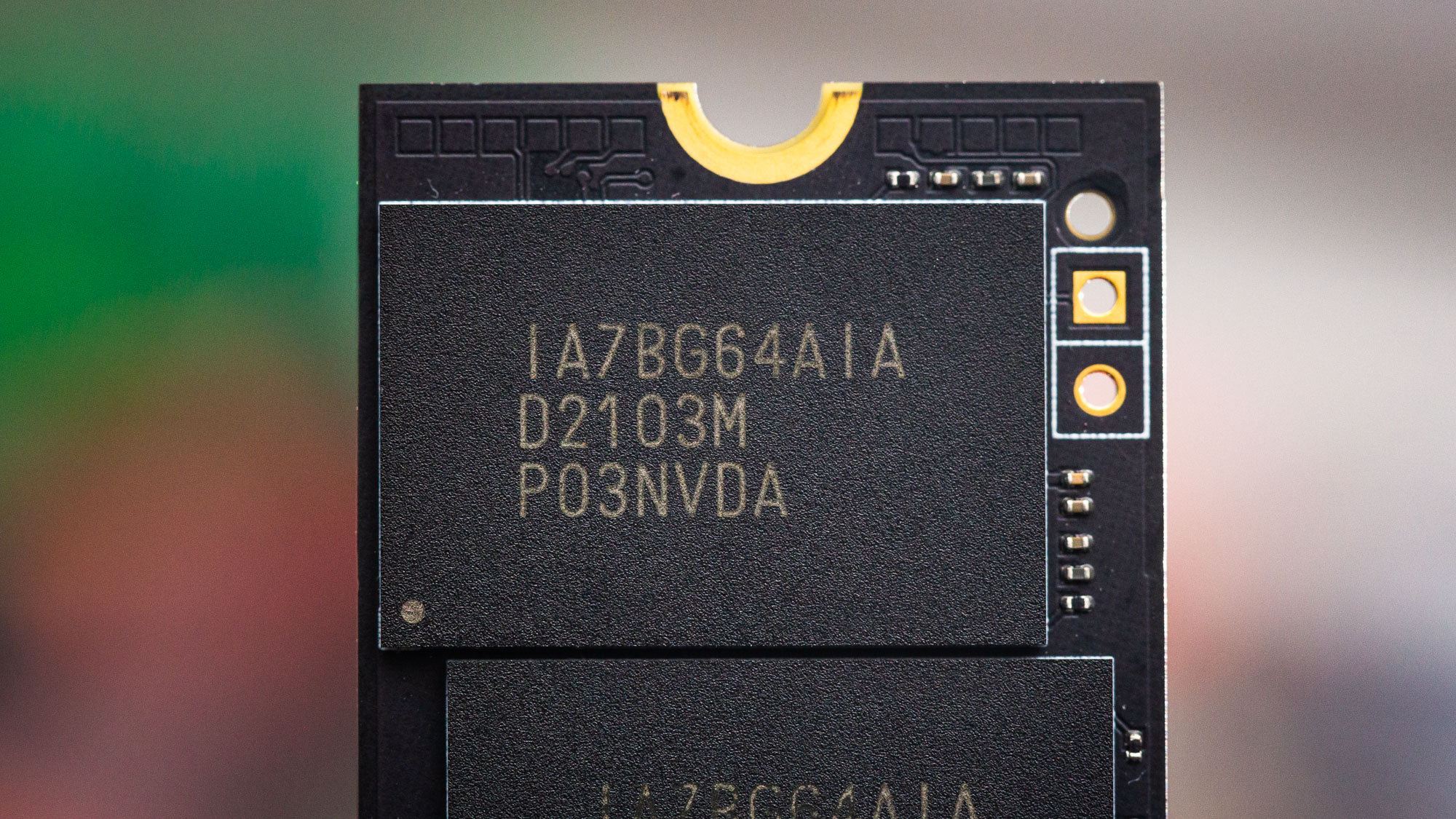
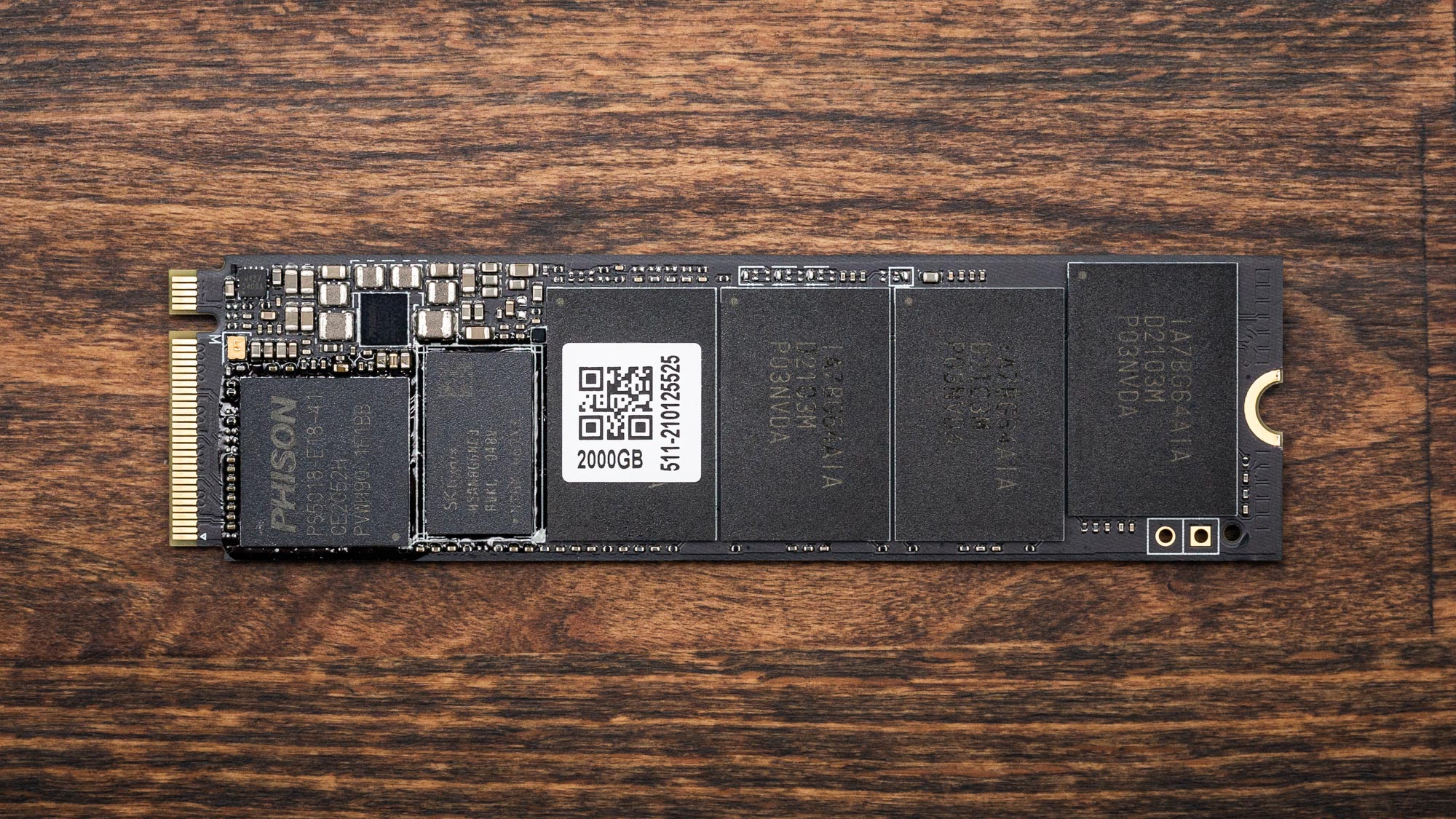
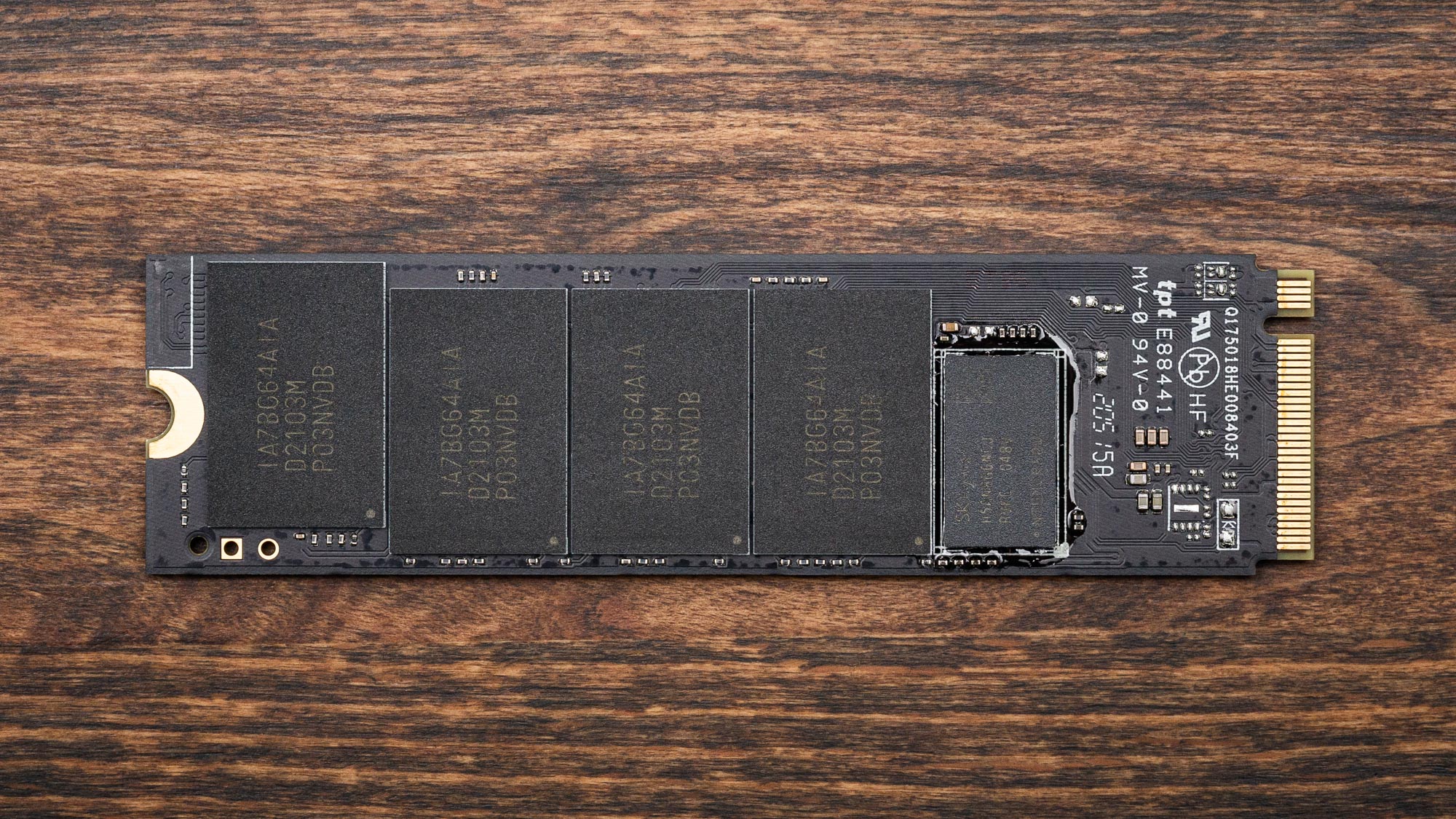
As for the fast flash powering the Spatium M480, 32 dies of Micron’s 512Gb 96L TLC spread across eight NAND packages make up the memory array. Each package interfaces with the controller at speeds of 1,200 MTps, which is a bit lower than the controller’s full potential, but still fast enough to keep up with most competitors and other Phison E18-based competition.

Sean is a Contributing Editor at Tom’s Hardware US, covering storage hardware.
-
Sleepy_Hollowed It's an OK SSD if found for that price, but this may be me talking from the scalping going on.Reply
It would do OK for gaming and home user loads, but definitively not a caching solution if you do lots of big transfers.
For those enterprise SSDs are probably a lot better, especially for photographers that do lots of random sustained IO.
I'm a big amused at the size of heatsinks these days though, although I appreciate them, especially in cramped cases.